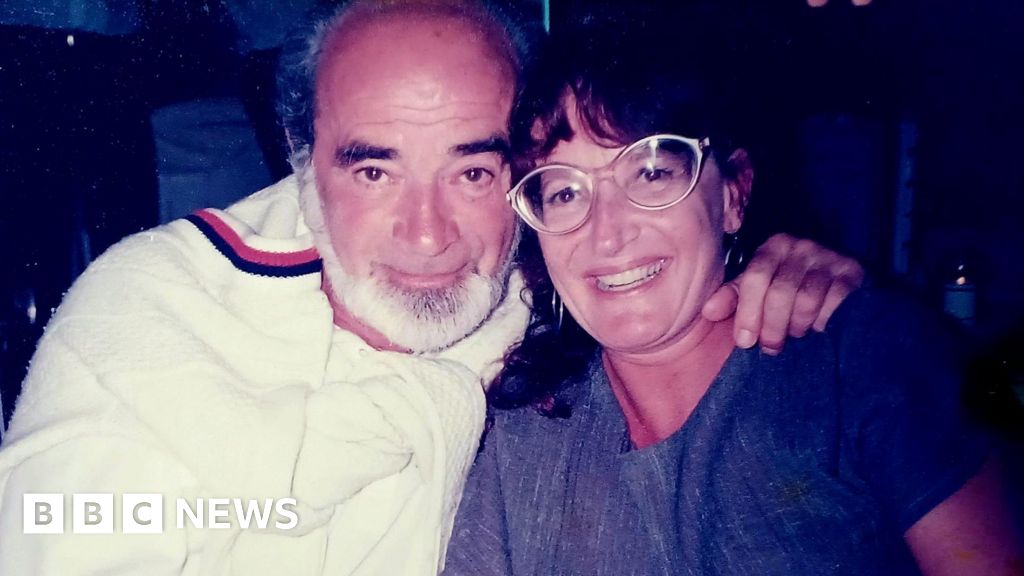BBC News, West Midlands
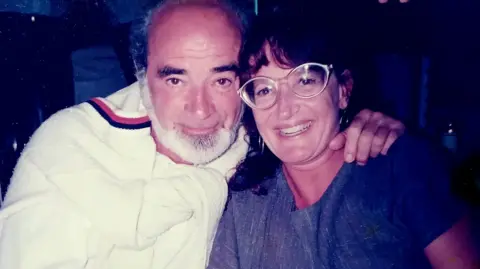 Family
FamilyThe diary of a Jewish teenager from Austria has been uncovered, leading to a mystery about a man from Wolverhampton thought to be helping Jews escape persecution.
The diary was discovered by Eli Getreu’s widow Barbro Gentele and featured entries written in 1939 as he was visiting his parents who were refugees in the city after escaping Nazi Vienna.
Dr Daniel Lee, a reader in European History at Queen Mary University of London, said it offered a significant insight into life in Wolverhampton on the eve of war.
It also suggested a man called Isaac Brown living in the city had been helping Jews settle in the UK and Dr Lee is appealing for information about him.
Mr Getreu moved to Denmark but visited his parents in Wolverhampton in May 1939, capturing in his pages the happiness and freedom he saw there before the outbreak of war.
The diary is handwritten in German and currently being translated by Mr Getreu’s grandson Öyvind Vågen.
It includes letters to a girl called Vera, who Mr Getreu had been in love with.
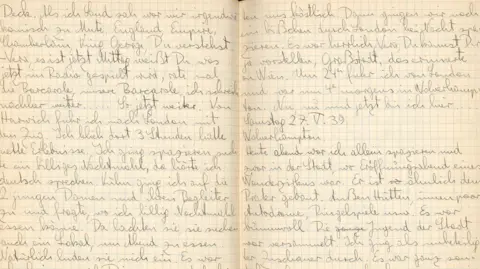 Handout
HandoutOne entry on 27 May 1939 describes a fair in Wolverhampton “packed to the brim” with boys on dodgems and girls in make-up and silk stockings, and the laughter after two boys deliberately crashed their bumper car.
Poignantly, Mr Getreu wrote: “I would have liked to have been as carefree that evening, but I was unable to. I was indeed sorry for something; I saw young girls everywhere in the arms of their boys, laughing, happy, and contented. I was jealous; I wanted to be so contented, too.”
Months earlier, he had described events in Austria during a wave of anti-semitic violence carried out by the Nazis.
It is now referred to as the November Pogrom, formerly known as Kristallnacht.
Attacks had begun in Germany and continued in Vienna on 10 November 1938.
That day, Mr Getreu documented soldiers searching homes, deserted areas where Jews would have previously gathered, religious scrolls thrown in the street, arrests, boarded-up shops, looting, an explosion and burned-down synagogues – and how he got home to be greeted by his mother “running out, crying joyfully, kissing me and being happy that I was there”.
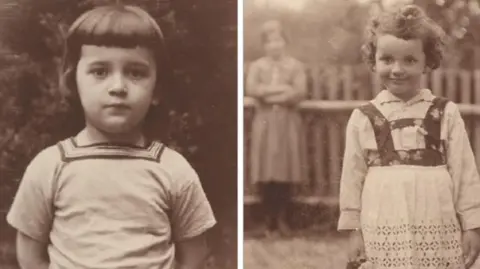 Family
FamilyDr Lee, who was contacted by the family after they heard a BBC radio programme on the Holocaust, said: “It’s amazing to think these boys and girls are having a lovely night, drinking and wearing make-up, but six months’ later, they were in a very different place,” he said.
“Some of those boys wouldn’t even be alive. Women were going into factories.
“But here they are all having the time of their lives, with no idea of what was going to happen.”
He said Mr Getreu had been “a typical 18-year-old adolescent who did not have a crystal ball to inform him of what was around the corner” – who had paid as much attention to his personal thoughts as the horrific anti-semitism and violence seen on the streets of Vienna.
Ms Gentele, who lives in Stockholm, described her husband’s diary as that of a “young man who was madly in love” and a shy and sensitive teenager who was worried about his parents.
She met him in 1973 in Sweden when he had become a psychotherapist working with families and Holocaust survivors.
He died in 2005 at the age of 85.
Ms Gentele said she had no idea what he was going through in Wolverhampton, but believed he was writing about “a glimpse of what could have been”.
The family are now hoping to find out more about what life was like in Wolverhampton for Mr Getreu’s parents, and whether they were part of a wider community of Jews who had fled Europe.
They said they wanted the journal to be published, not just as an account of war, but also as a way for young people to understand history, identity and empathy, and to “walk in another person’s shoes”.
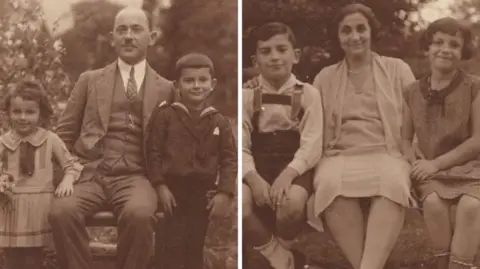 Family
FamilyThe diary has also led Dr Lee to discover more about who might have helped the family in Wolverhampton.
He said a man called Isaac Brown, living at 65 Tettenhall Road, Wolverhampton, was supporting Jews.
The academic has found several documents backing up his theory, including a refugee card and information from a 1939 registry.
Now both the family and Dr Lee are hoping to trace anyone who knows more about Isaac Brown and the help he gave to those fleeing conflict and persecution.
Dr Lee said tens of thousands of Jews would have been seeking asylum in the UK at the time, and it was remarkable that Mr Getreu’s parents found their way to the city at a time when borders were closing. He is seeking information on Mr Brown’s role in facilitating this.
The academic said the diary was significant because it revealed the routes some Jewish refugees took, adding: “They didn’t always go to London, Paris or America, but rather followed family networks.”
He said Holocaust history was more commonly linked to places such as the notorious Auschwitz concentration camp, and he added: “You don’t think about Wolverhampton and the Jewish refugees who fled there.”
It was an important discovery, he added, because so much World War Two research had highlighted the voices of the Nazis and the perpetrators of the Holocaust.
He said: “There is still so much more to uncover about the Jews themselves.”
